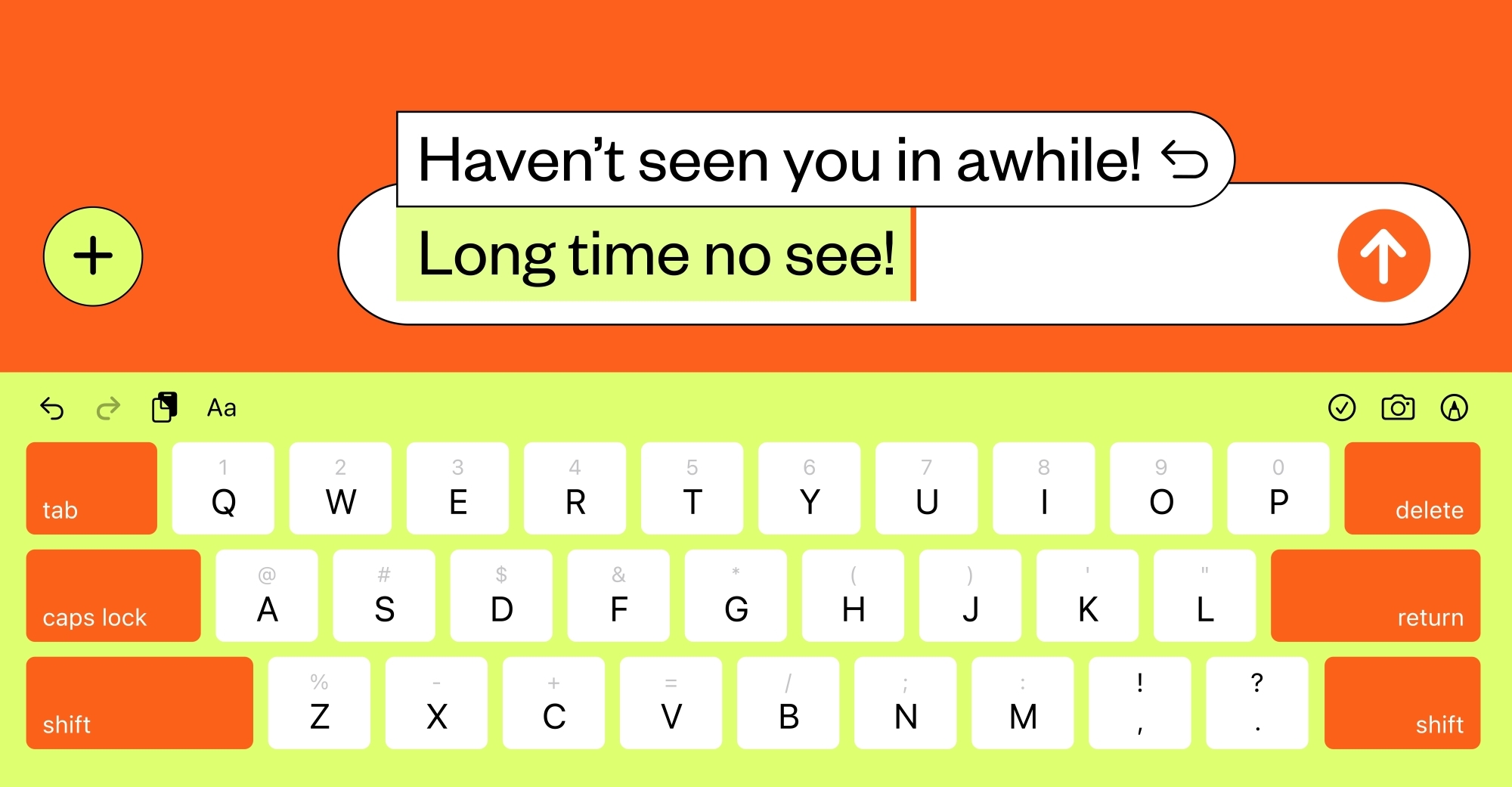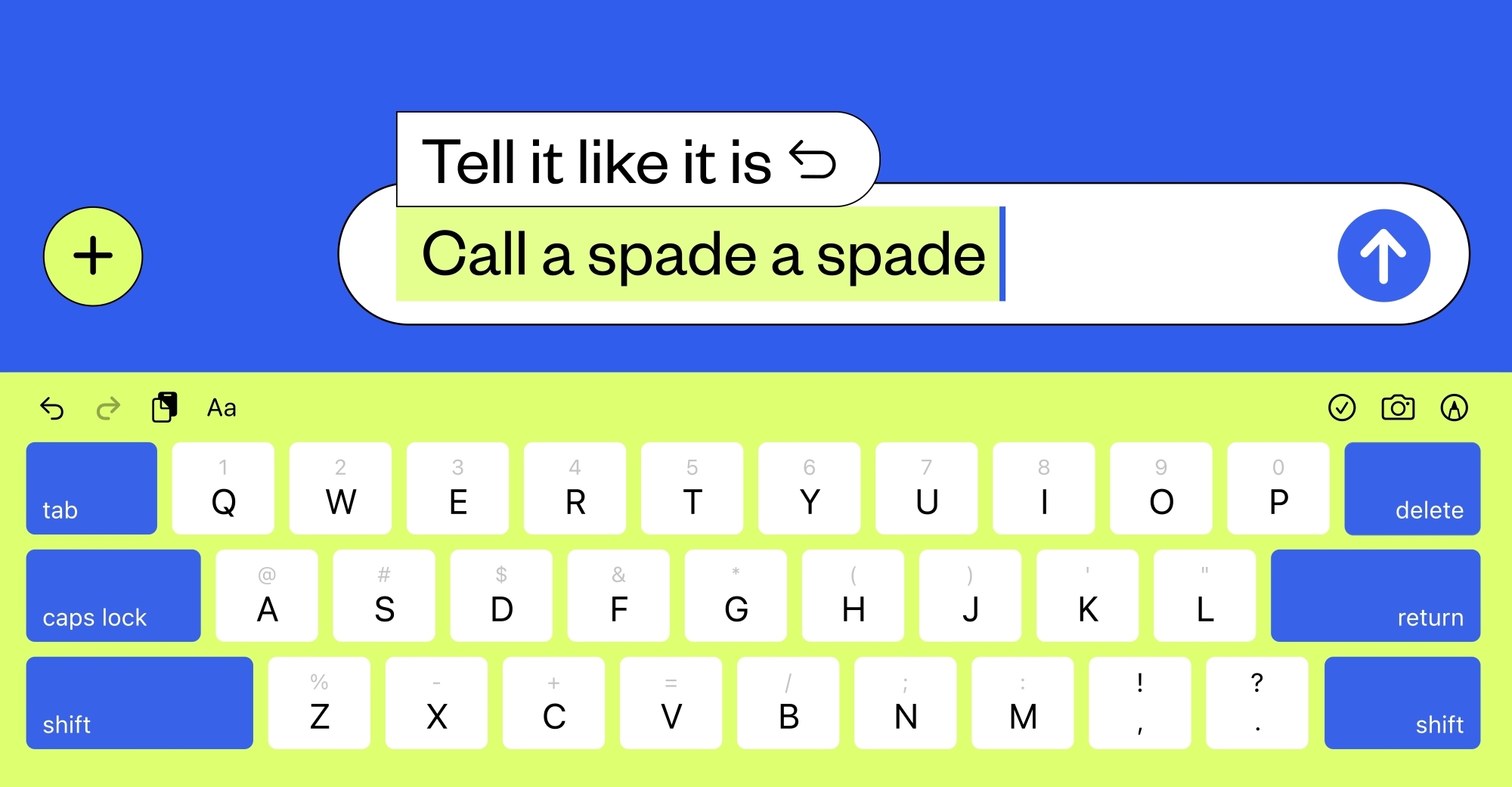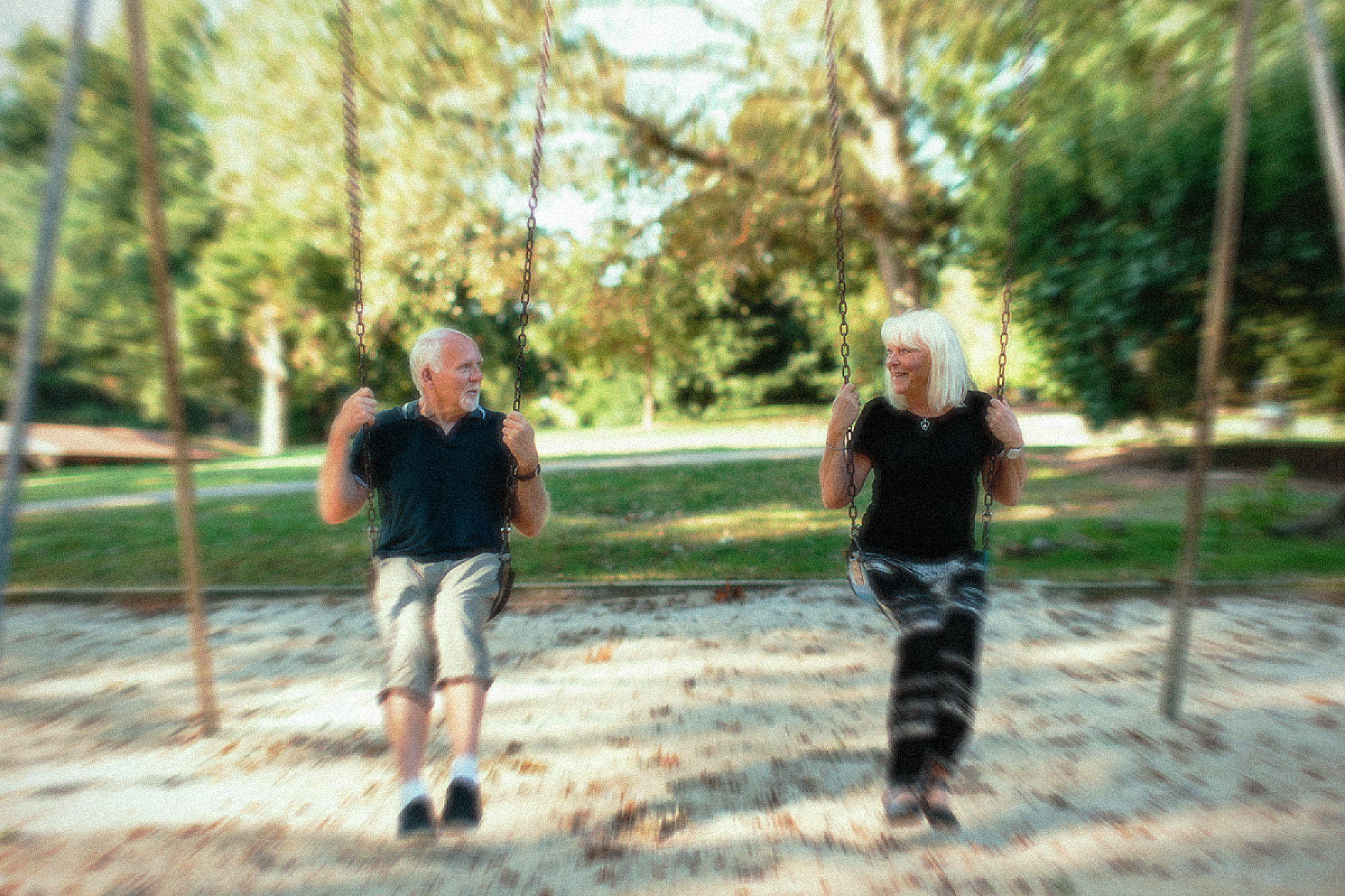There’s an age-old adage that, “sticks and stones may break my bones, but words will never hurt me.” But, at Day One Agency, we challenge that saying by acknowledging the power of words.
Welcome to Day One’s Inclusive & Conscious Language Guide. Its mission is to help our employees think critically about the language they use and choose words that empower, rather than limit or exclude.
This guide shares examples of commonly used language that perpetuates stereotypes, includes violence, or has racist, ableist or sexist roots. For each of the terms we point out as problematic, we take you through their history and provide alternative words to use instead. And if you mistakenly use an old word out of habit IRL, just focus on acknowledging the mistake, educating each other and ourselves, and asking questions rather than harping on the error. We’re all learning, unlearning and relearning together. Let’s dive in.
Words with Racist Roots
There are many clichés in the English language that are rooted in racist notions and otherness. Often, a word is taken from another culture to mean something unflattering. Some draw on the grotesque treatment of enslaved Africans; others misrepresent Indigenous traditions celebrated by nations that suffered irreparable harm under Western colonialism; others represent antisemitic views and mistreatment of Jewish people throughout Europe and the world. The list goes on. Below are some harmful words and phrases to avoid:
Blacklist — Although the origin in the 1400s was regarding criminality, in 1610, when the enslavement and deportation of Africans by Europeans was in full effect, the term began being used towards Black people. Since then, the terms “blacklist” and “whitelist” have been used in tech, as well as in common parlance, to refer to access to systems—”blacklist” being denied access and “whitelist” being granted access. Color coding to mean “good” or “bad” evokes racial ideologies. Instead, use more neutral terms like “banned,” “permit/allow list” and “block list.” Other terms to avoid for similar reasons include: “blackballed,” “black market,” “black sheep,” “whitewash,” etc.
Bottom of the totem pole — A totem pole is a sacred Indigenous monument. In some tribes or nations, carvings of animals and other symbols on the bottom of a pole are, in fact, a mark of honor. The idiom in mainstream culture, however, suggests that someone or something is of the least importance or lowest social standing. Non-Indigenous people who use the phrase in this way are not only engaging in cultural appropriation, but also desecrating tradition. Instead, use “least important.”
Cakewalk — “Cakewalks” were dances where enslaved Africans performed on plantations mocking the mannerisms of their enslavers, after they’d been dressed up to dance or perform at parties for their enslavers’ entertainment. It has since been twisted to mean “easy victory,” which was by no means the case. Instead use “easy” or “easy victory.”
Call a spade a spade — For most of its history, “call a spade a spade” was simply a metaphor for “tell it like it is.” But the expression took on racist overtones in the early 20th century when it became a derogatory term for Black people. Instead use the original intention: “tell it like it is.”
Grandfathering/Grandfathered in — The phrase has its origins in Jim Crow-era laws that put requirements, like literacy tests and poll taxes, on voting. The idea was to prohibit Black people from casting their vote. But when some feared the laws would also disenfranchise poor white Southerners, several states made it legal for those who had voted in elections prior to be able to vote moving forward. Now, “grandfathered in” means a provision in which an old rule applies to some, but a new rule applies to others. Instead use “old rule applies.”
Gung-ho — The term traces back to 1930s China as an abbreviated translation for the “industrial cooperative movement,” which organized unemployed workers and refugees to produce public goods during the war. Years later, it was adopted by the U.S. military, which mistakenly thought the concept meant “teamwork”. Today, gung-ho has become a zinger to mock someone who’s too enthusiastic or a “try-hard.” Use those terms instead.
Gyp/gypped/gypsy — ”Gypsy” is a pejorative used to describe the Romani people and carries many negative connotations, including being “swindled” or “cheated.” Use those terms instead

Let’s have a quick powwow — To Indigenous people, a powwow is a longstanding gathering (going back centuries) for ceremonial purposes where people sing, dance and engage in healing rituals. In American parlance, “powwow” is used casually as a substitute for a quick “meeting” or “discussion,” which reduces its significance and meaning. Just refer to a “meeting” or “quick chat” instead.
Long time no see — One belief is that this phrase originated from Chinese immigrants working on the railroad during the gold rush who simplified the English language that English and American military personnel mocked as “ungrammatical’”. The second belief is that it originated from Indigenous people speaking pidgin English that was mocked and deemed ungrammatical by English and white Americans. Regardless of the origin, the roots are based in mockery of underrepresented groups and used now as a phrase to mean “I haven’t seen you in awhile.” which should be used instead.
Minorities — For many, many years, “minority” was used to separate, classify and then group all people who aren’t white together and indicate inferiority. But continuing to use “minority” or “marginalized” presents BIPOC communities in terms of their quantity instead of their quality, and also removes their personhood. By including “BI,” which means “Black and Indigenous,” in addition to “POC,” which means “people of color,” we honor the unique experiences of Black and Indigenous individuals and their communities, as well as the spectrum of existence and experience by POC. Always remember to use the specific identity when it’s known (i.e., say Black, not BIPOC) to acknowledge individual experiences and cultural identities.
No can do — This phrase emerged in the late 19th century, around the time the U.S. passed the Chinese Exclusion Act banning immigration from China. Some white Americans popularized the saying to mock the accented, sometimes “ungrammatical” English of Chinese immigrants. Use “can’t do it” instead.
Peanut gallery – This is a classist and racist phrase that dates to the late 19th century. Originally, this term described the cheapest seats in a theater. However, it also was used to describe the upper balcony seats in segregated theaters. A better word is “hecklers.”
Poisoning the well - This was an accusation rooted in the 14th century Bubonic Plague that blames Jewish people for purposefully spreading disease through common drinking wells. Thousands of innocent Jewish people were killed as a result. Although this term has been widely used to mean spreading negative information in order to discredit someone/something, based on its history, this phrase should be avoided. Use “smear tactic,” "diminishing their strength” or “attempts to discredit.”
Sold down the river — The saying derives from the practice of selling enslaved Africans down the Mississippi River to cotton plantations in the South. It’s now deployed as a substitute for “profound betrayal.” Use that phrase instead.
Spirit animal — In some Indigenous traditions, spirit animals operate as spiritual guides through a person’s life and are sacred. However, the pop culture adoption of the term has come to mean a creature that embodies one’s inner personality and diminishes the spiritual significance for Indigenous people. Instead, refer to your “inner persona.”
Tribe — The use of “tribe” by Indigenous people is often debated. Many Indigenous people have opted to use “nation” instead of “tribe,” because “tribes” are tied to European colonialism, the subsequent displacement of Indigenous people and the longstanding fight for recognition from the U.S. government. In the present day, people use “tribe” to refer to their friends, when the meaning behind this term reaches far beyond that and refers to people who are culturally, familially or spiritually.tied.

Harmful Language to the Diversability Community
Due to a lack of understanding at best, or ableism (discrimination or social prejudice against people with diversabilities) at worst, we often nonmaliciously use language that is rooted in offensive labels for people with diversabilities. Always remember to use language that’s people first, versus identity-first, to ensure that you’re coming from a place of respect and acknowledgement. Below are some words to avoid and why:
Crazy, hysterical, insane, psycho, nuts: These words and others like them—better known as “diversability” euphemisms—have become common parlance to describe shocking occurrences. (I'm guilty of this too!) They can be damaging by making light of negative names for people with diversabilities. Instead, use “shocking,” “unbelievable,” etc.
Crippled, lame, and metaphors like “turning a blind eye” and “falling on deaf ears”: While this language is often used nonmaliciously, it can be damaging to people with diversabilities by underplaying the seriousness of their conditions and, essentially, not acknowledging their existence.
Disability, disabled: These words define by and focus on what someone cannot do. Instead, use the term “people with diversabilities” to be more accurate and come from a place of empowerment. It’s important to note that some diversabilities are not “limitations,” but instead are just another way of being or doing something.
Afflicted with/stricken with/suffers from/victim of/impaired or impairment: These terms carry the assumption that a person with a diversability is suffering or has a reduced quality of life. Not every person with a diversability suffers, is a victim, is impaired or is stricken. If the diversability has been disclosed to you by the person, then simply state the nature of the diversability.
Tone deaf – Using this phrase to indicate someone misread a situation or said or did something inappropriate, thoughtless or inconsiderate, links deafness with something negative—something that someone failed at. It’s part of a broader problem known as “ableism.” Here’s a good guide for to how to steer clear of similar words and phrases. This resource also elaborates on using the approach of “people first” when talking about someone’s diversability. For example, you should say “a person on the autism spectrum,” not “an autistic person.”
Language with Gender Biases
There are many terms that are gendered—some are obvious and others not as much. It’s important to recognize these and use gender-free language to not only account for the binary gender construct (use of feminine and masculine words), but to ensure all identities are considered. To be more inclusive and avoid using gendered pronouns when speaking about a group, use plurals, second person, avoid slashes (his/her), eliminate the third-person singular possessive (i.e. “a pad of paper” versus “his pad of paper”) and avoid slashes (his/her),, etc., whenever possible.

Guys: Use “everyone” or “you all” to ensure you’re not defining everyone as “guys/you guys.”
Female/male: If the gender identity is confirmed, then use “woman,” “man,” or “nonbinary person” so the phrasing is about one's identity vs. sex. If you’re not sure and it's not someone you can respectfully ask, use “person” or “individual.”
Man hours: Use “workforce,” “employees,” or “team” to be inclusive of any identity.
Mankind: Use “humankind,” “humanity,” or “people” to account for all identities.
Policeman/businessman/mailman/fireman, etc.: Use “police officer”, “entrepreneur/business person/professional”, “postal carrier,” “fire fighter,” etc.
To man (“man the ship”): Use “to staff,” “to run,” or “to operate.”
Mothering: Use “caring” or “nurturing.”
Violent Language
Frequently used language meant to represent success like “hitting targets”, “blowing people away with a presentation,” “killing it” and “giving something a shot,” are all violent phrases. These phrases have become so common in our vernacular that we might not even recognize them as violent, like “bullet points,” which are often included in presentation memos and discussion of work. Below we offer alternatives.

Many of us have uttered at least one of these sayings in our lifetimes. Bringing attention to insensitive and exclusionary language is about learning and guiding each other towards better practices, together. 🫱🏻🫱🏾🫲🏻🫲🏽 Always remember that our words matter.




